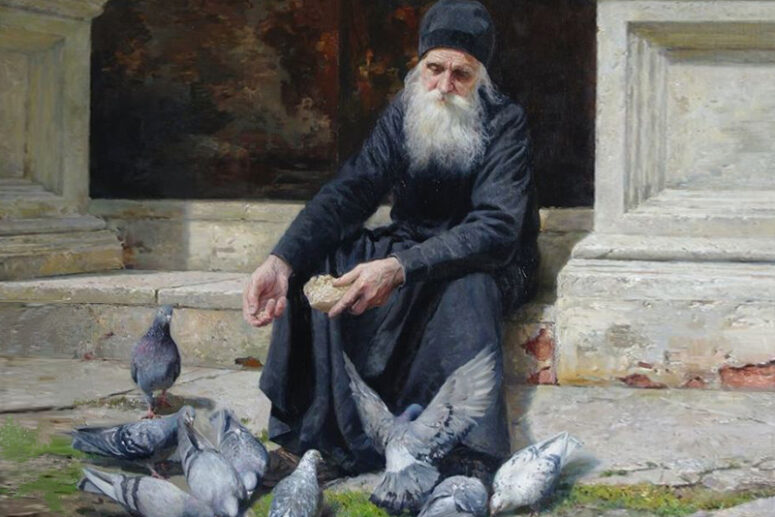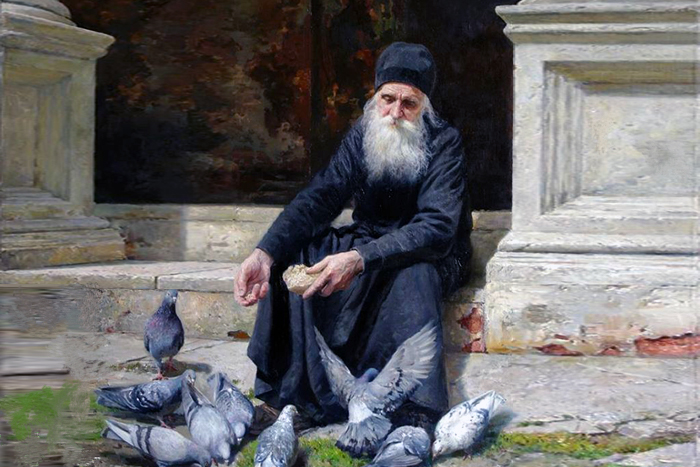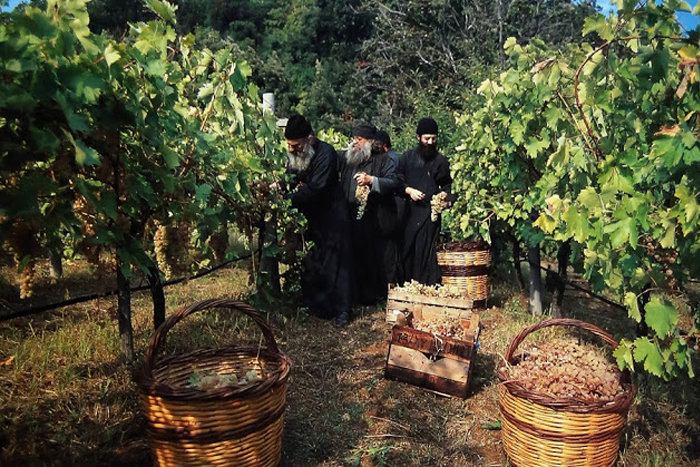
“Silence is the beginning of humility,” Ferapont read that in the Holy Fathers. Consequently, one cannot acquire humility before learning to keep silent. Silence is the language of the world to come, the language spoken by the Angels. “Why do people learn many different languages, but not the language of silence?” he wondered.
The future martyr had already experienced the fruit of keeping silence. It filled his heart with light and warmth as if from a lit candle. He new how easily the winds of verbosity could blow that candle out if he left the doors of his heart open to them.
A conversation once came up among the brethren.
“It only takes two or three weeks to get accustomed to silence,” said Ferapont. “But I read that Abba Agathon carried a stone in his mouth for three years before he taught himself to be silent. As it appears, the time it takes to learn the skill of silence depends on the type of person. If you are short-spoken, you will learn it quickly, but if you are used to verbosity, then it is a struggle.
Observing himself, Ferapont noticed that silence revealed his hidden passions – curiosity, malice, the desire to delve into everything and edify.
“Therefore, it is very important,” he said, “to learn to be silent both in one’s mind and heart.
“What does it mean to be silent in your mind and heart?” they asked him.
“It means not letting sinful thoughts and feelings speak in you. Silence is a medicine that heals the soul.”
“What if you are slandered and need to say a word in your own defence? Mustn’t you tell the truth then?
“The Lord keeps your soul as long as you keep your tongue. You need to know that no matter what difficult situation you find yourself in, silence is the true victory in it. Remember the words of the Gospel “For your words you will be justified, and for your words you will be condemned” (Matt. 12: 37) You will soon see that it is better to be silent than to speak.
From the book How They Become Angels (biography of monk Ferapont (Pushkarev) of Optina hermitage)
Translated by The Catalogue of Good Deeds
Source: https://obitel-minsk.ru/chitat/den-za-dnyom/2020/yazyk-angelov





Is this book available in English or only in Russian?
Thank you!
We’re afraid no. But there are many articles about the Optina monks on the Internet.
Thank you. Is this available in English?
We’re afraid no. But there are many articles about the Optina monks on the Internet.